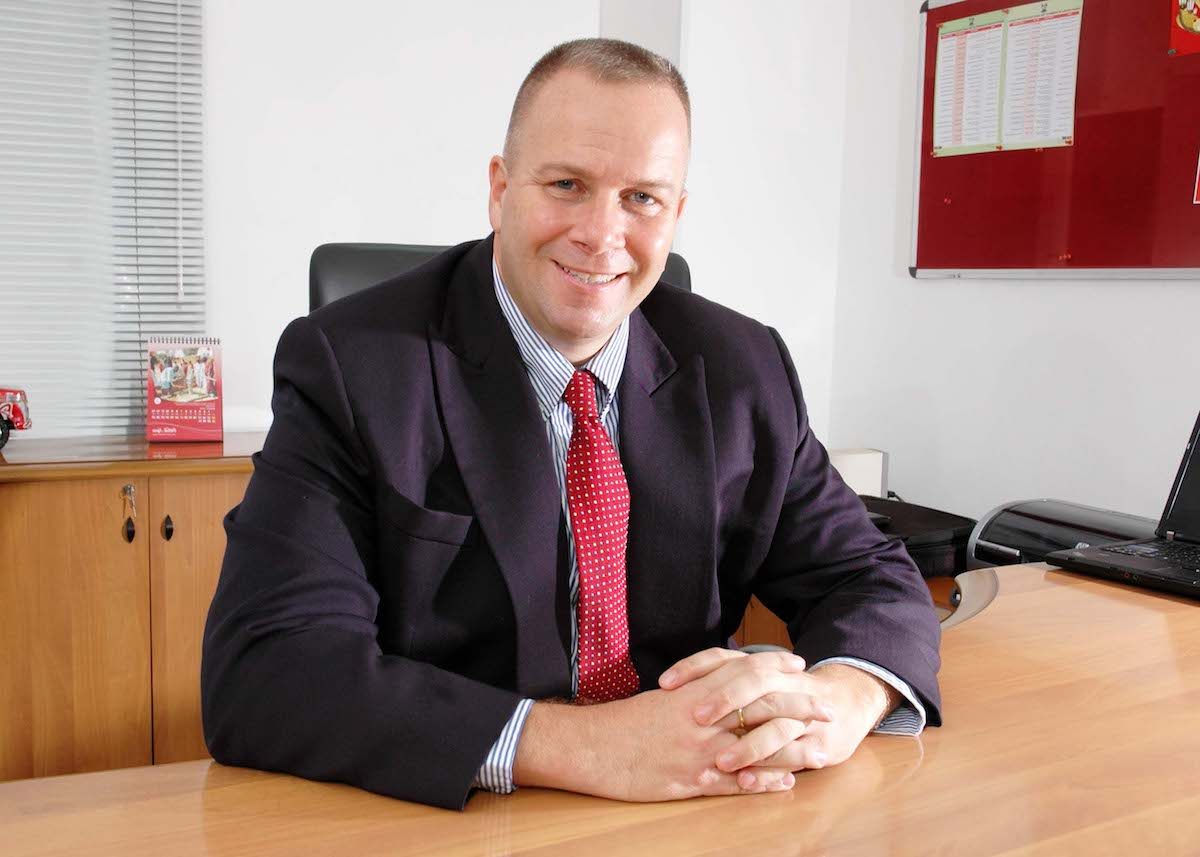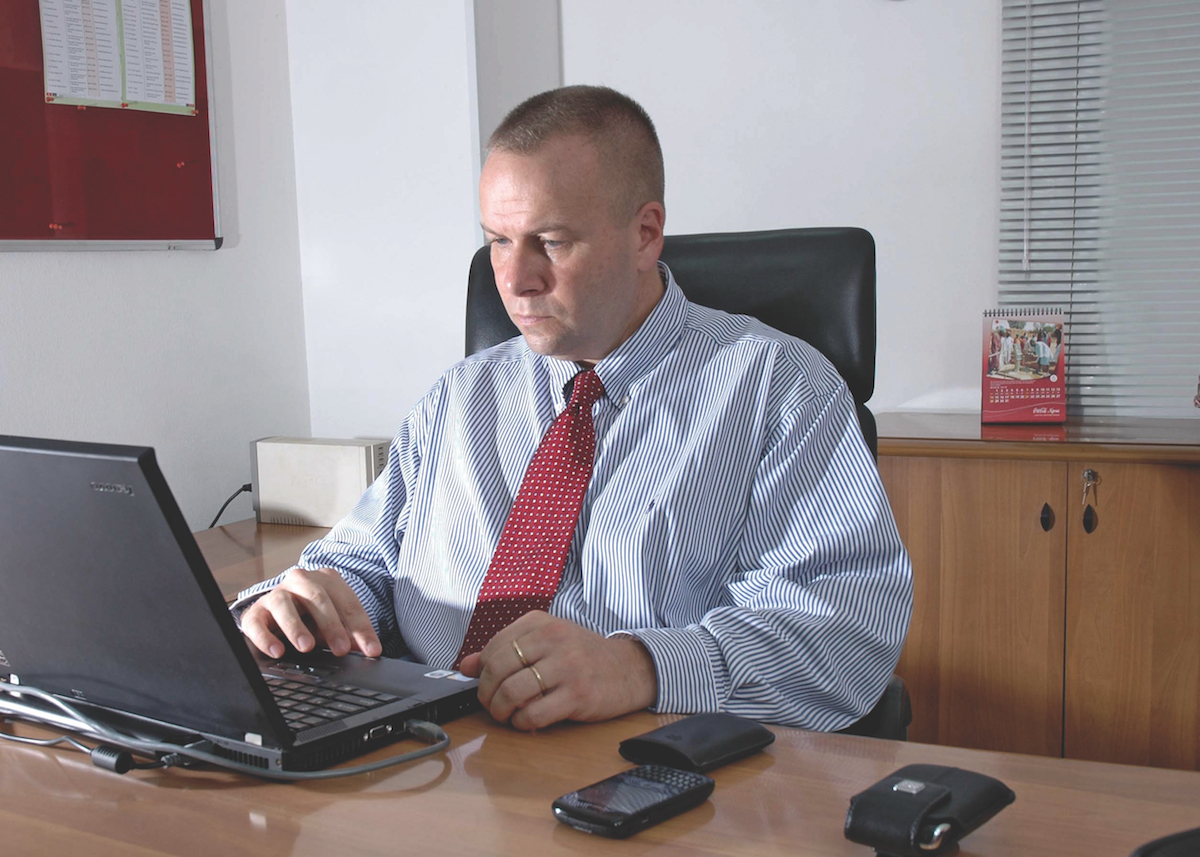A pulpit to create change: James Michael Lafferty
With a passion for life and a dynamic approach to management, inspiring CEO of Fine Hygienic Holding James Michael Lafferty confronts challenges with a glass-half-full philosophy.
Some 30 years ago, the sentence "Hey, you ought to do what I do" changed the course of James Michael Lafferty’s career. Originally an exercise physiologist, the now-CEO of Fine Hygienic Holding was introduced to the world of brand management through one of his physio clients. "I had no idea what it was, but he said he thought I would be a good fit," James recalls.

His first interview at Procter and Gamble (P&G) was unsuccessful but a rejection letter didn’t stop him from fighting for his goals. "I looked up the name of the HR manager, wrote him a letter and said I deserved another chance," he says. "They were shocked and three months later brought me back for another interview. They made me an offer and I joined in 1985 in an assistant marketing role."
After 23 years at P&G and some international CEO assignments, James became CEO of Fine Hygienic Holding in 2018. He approaches management, first and foremost, with a belief in people. "It’s all about improving people; making people better and inspiring people," he says. "My number one job is to motivate the people around me. There is no job beneath me, and I treat everyone with dignity and respect."
"My number one job is to motivate the people around me. There is no job beneath me, and I treat everyone with dignity and respect."
As a multinational corporation in over 75 countries, Fine Hygienic Holding "thinks globally, acts locally". Brand names and product formulations are all standardised, which reduces complexity in its systems. James says the company focuses on financial metrics, including growing market shares year on year and aims to go public within the next three years.
"It is our goal to be one of the few regional Fast-Moving Consumer Goods (FMCG) companies in the Middle East to go unlisted on the global exchange."
Fine Hygienic Holding stands out from its competitors through its culture and quality. First, a dedicated workforce
is a testament to the vision and nature of the company. "It is a world-class company that values people," James explains. "Some employees have worked here for 20 to 40 years.
One just retired after 48 years, which is a degree of loyalty I’ve never seen before." Second, there is a commitment to quality products. "We don’t sell cheap. Our business model is value and quality at a level that makes sense to our customers."
Though the culture is strong, James admits it is a challenge to maintain. With over 4,000 employees, it can be difficult to support a family environment, balanced by accountability. One of James’ strategies to strengthen the culture is to encourage diversity.

The company hires people from all over the world, and up to 40% of our senior managers are now women, a significant increase from zero less than a year ago. "The decision for me is black and white," he notes. "You must act or things will never change."
Another challenge the company faces is industry movements. Global pulp prices, the foundation material of many paper products, are at record highs.
"There is a global pulp shortage, which has made prices rise to astronomical heights," James says. "This region has seen overinvestment in papermaking, which leads to overcapacity and competition for a smaller piece of the pie. These challenges give life a bit of zest though and taking on difficult tasks is part of running a business."
The company has established a department of digital transformation to keep up with the changing nature of modern industries. It has a higher market share in ecommerce than in regular stores and is focusing on virtual reality, near-field communication chips and radio-frequency identification.
"We are embracing digital transformation completely, in every shape and form. The team is dedicated to ecommerce, developing employee apps and implementing new technologies."
James’ passion is apparent and he says he is motivated by the legacy he hopes to leave, along with his vision for the company.
"You can leave the world worse off, the same or better. I’m trying to make it better and that includes using this role and corporation to improve the societies in which we work. I’m incorporating radical ideas in the organisation to help make it a bit better for the next generation of workers. I have always loved approaching my job as a pulpit to create change."
In the end, James believes you can be successful if you’re willing to take risks. "When I was younger and unsure of whether to take my first overseas job," he explains, "an older sales manager in my office told me, ‘Do you know what I regret in my life? I only regret the risks I didn’t take.’ The decision to leave my comfort zone was the best decision of my life, so I tell every young person I meet to take risks."